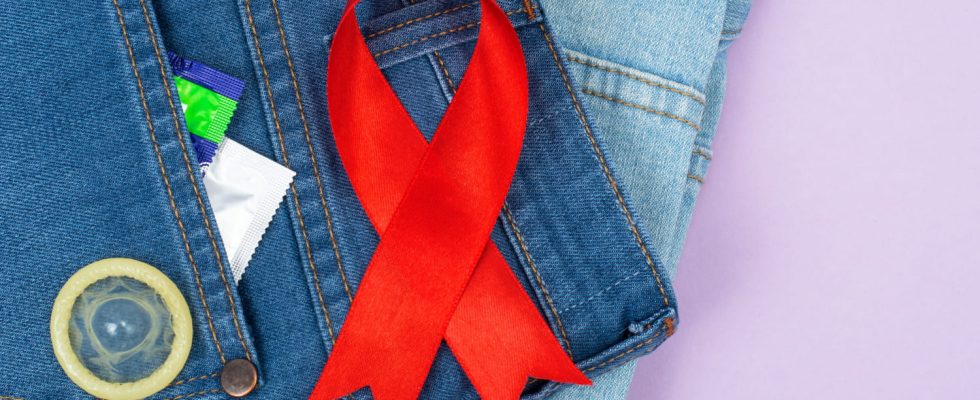How do you know if you are HIV positive without a test? The answer to this question is simple: HIV status can only be detected by a test. Indeed, there is no physical sign that demonstrates HIV seropositivity, this infection evolving very slowly and for years.
What are the physical signs of being HIV positive?
There is no specific sign which shows that the person is HIV positive. “Indeed, HIV seropositivity testifies to an infection that evolves very slowly: in general the stage of AIDS is reached after 7 years. For years, you can be a carrier and live with HIV without knowing it“, emphasizes Professor Karine Lacombe, head of the tropical infectious diseases department at Saint-Antoine hospital in Paris. There may sometimes be some physical signs of primary infection by HIV. In the weeks following unprotected intercourse, one can develop a viral syndrome with fever, body aches, muscle aches, sometimes a rash or lymph nodes which swell. “Unfortunately, you can live with HIV for many years without being aware that you are infected.
Are there other ways than the test to know if we are contaminated?
There is therefore no other way of knowing that one is contaminated except the test carried out oneself (purchased in pharmacy) or in the laboratory, which makes it possible to confirm or invalidate seropositivity, the presence of the infection. “Only biological tests can be sure whether you are infected or not.
What is the minimum time to find out if you are HIV positive (after a risky relationship)?
There are tests that can be carried out very early on when there is a high risk of having been contaminated. We’re going to test the viral load. “We can realize a test 2 to 3 weeks after the potentially contaminating report, but this test is not routinely performed. It is recommended to wait 6 to 8 weeks after the report at risk for the body is the time to develop antibodies. Laboratory serology can then be considered to detect them. A rapid test or self-test (small prick at the end of the finger) can also be offered later. “Indeed, rapid tests are effective at the end of the 3rd month”.
“There are several thousand people in France who live without being aware of their HIV status”
Can an HIV-positive person not know?
Absolutely, a person may not be aware of their HIV status. “There are many thousands of people in France who live unaware of their HIV status. This is why it is recommended to take an HIV test at least once in your life and after every risk, unprotected sex with someone whose HIV status is unknown.
Some indirect signs of HIV infection can alert: shingles, lung infections, or a recurrence of infectious diseases. “These signs are opportunities for screening. Consider doing an HIV serology. Living with HIV predisposes you to infections more often“, warns Professor Lacombe. When we change partners before giving up the condom, both people must take an HIV test. At the slightest risk, HIV testing must be integrated into a “routine” of medical follow-up.
Thanks to Prof. Karine Lacombe, Department of Tropical Infectious Diseases, Hôpital Saint-Antoine (AP-HP), Paris; co-president of the “respiratory viruses” coordinated action within the ANRS Emerging Infectious Diseases, Paris.
